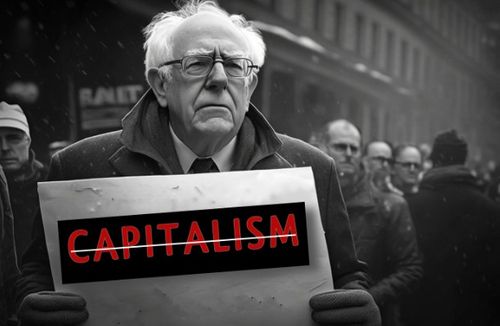'It's OK to Be Angry About Capitalism' by Bernie Sanders - a quick summary
Mar 07, 2023 · 2 mins read
0
Share

US Senator Bernie Sanders wroteIt's Ok to Be Angry About Capitalism (edited by John Nichols, a journalist for The Nation) to illustrate how capitalism is an inherently flawed system that creates vast inequality.
Save
Share
Sanders contends that the wealthy have rigged the system in their favor – at the expense of the working class.
Save
Share
Why? Because the American Dream, the ideal of equal opportunity and upward social mobility, is no longer attainable for most people, due to factors such as stagnant wages, rising costs of living, and limited access to education and healthcare.
Save
Share
Sanders argues that the government must intervene to address the structural problems of capitalism, including issues like healthcare, education, and housing. He views these as basic human rights that should not be subject to the whims of the market.
Save
Share
For Sanders, a democratic socialist system – which combines democratic governance with socialist policies such as public ownership or control of some industries – would be a fairer and more just approach than capitalism, which he sees as prioritizing profit over people.
Save
Share
It's Ok to Be Angry About Capitalism critiques the ideology of neoliberalism - a political and economic philosophy that emphasizes free markets, deregulation, and individualism - and its negative effects on society, such as inequality, insecurity, and environmental degradation.
Save
Share
Sanders argues that the current system is unsustainable and will ultimately lead to a crisis.
Ok, you may ask, so what are the alternatives?
Save
Share
He highlights the potential benefits of worker cooperatives, which are businesses owned and democratically controlled by their workers, and other alternative economic models that prioritize collective ownership, community development, and sustainability.
Save
Share
What makes Sanders' voice so valuable within the political ecosystem is that he challenges the mainstream discourse by insisting:
- class wars are not over
- capitalism is not inevitable
- markets do not operate independently of moral considerations
Save
Share
Bottom line: The ultimate message of the book is to get involved in the fight for economic justice. That means challenging unjust economic practices and demanding change from elected officials. Only then will we stand any chance of counterbalancing the power of corporations.
Save
Share
0